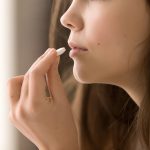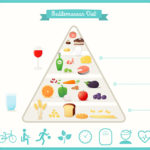Can a Cup of Coffee Help to Protect Your Eyes?
Written by Dr. David Evans Last modified on October 4, 2018
I’m not much of a coffee drinker, but based on recent figures from the National Coffee Association (NCA), it appears I’m part of a growing minority. According to the latest data from the NCA, 64 percent of Americans over the age of 18 said they had at least one cup of coffee the previous day (up from 62 percent in 2017). There’s no arguing the fact that coffee is the fuel that many people need to jumpstart their day. But, did you know that in addition to helping you wake up, that morning Cup of Joe could be protecting your long-term eye health?

A study from Cornell University found that a daily cup of coffee can potentially protect against the retina damaging effects of glaucoma, age-related vision loss and diabetic retinopathy. Published in the Journal of Agricultural and Food Chemistry, the research tested a particularly strong antioxidant (chlorogenic acid or CLA) on mice and monitoring retinal health. Those pretreated with CLA developed no retinal damage during testing.
It has yet to be determined whether the CLA in coffee is capable of crossing the blood-retinal barrier in order to be beneficial. But given the relatively high amount of CLA found in raw coffee (roughly 7 to 9 percent per ScienceDaily), it’s plausible that by regularly drinking coffee, you could help to support retinal health. However, even if additional study finds that the CLA is not capable of crossing the blood-retinal barrier and that drinking coffee has only minimal benefit in aiding retinal health, the CLA study remains valuable. Research results could lead to synthetic CLA compounds could be developed and administered via medicated eye drops.
Eye Health and Caffeine
In addition to the studies focused on the benefits of CLA on retinal health, there is a broader connection between eye health and coffee: caffeine. A number of studies have evaluated the effects that caffeine plays on eye health, including aiding common issues like dry eye. Some research suggests that caffeine helps to stimulate tear production, the lack of which is a leading cause of dry eye.
But as with most things, moderation is key. Too much caffeine has been linked with a number of negative health issues including migraines, insomnia, irritability, muscle tremors and irregular heartbeat. Excess caffeine has also been linked with an increased risk of glaucoma. A study published in Investigative Ophthalmology & Visual Science suggested that consuming more than three cups of coffee a day increased risk for pseudoexfoliation glaucoma.
The Good, the Bad and the Bottom Line
The Cornell study is promising in terms of coffee serving as a protector against retinal damage, but there are clearly some red flags associated with excessive coffee consumption. The bottom line is that if you’re not a coffee drinker, don’t feel the need to start force-feeding yourself a daily cup in order to protect your vision. And if you are a coffee drinker, don’t drink cup after cup thinking it’s a magic health elixir and that more is better, because drinking too much caffeine can be problematic.
Better Vision Guide will continue to track the progress of CLA studies and the potential eye health benefits of coffee, but for now, I’m sticking with my current routine until I read something more conclusive; an occasional cappuccino after meals.
Sources:
The Relationship between Caffeine and Coffee Consumption and Exfoliation Glaucoma or Glaucoma Suspect: A Prospective Study in Two Cohorts – IOVS – Sep. 2012
Could your morning coffee be goof for your eyes? – American Optometric Association – May 2014
A cup of coffee a day may keep retinal damage away, study shows – ScienceDaily – May 2014
Caffeine: How much is too much? – Mayo Clinic – Mar. 2017




